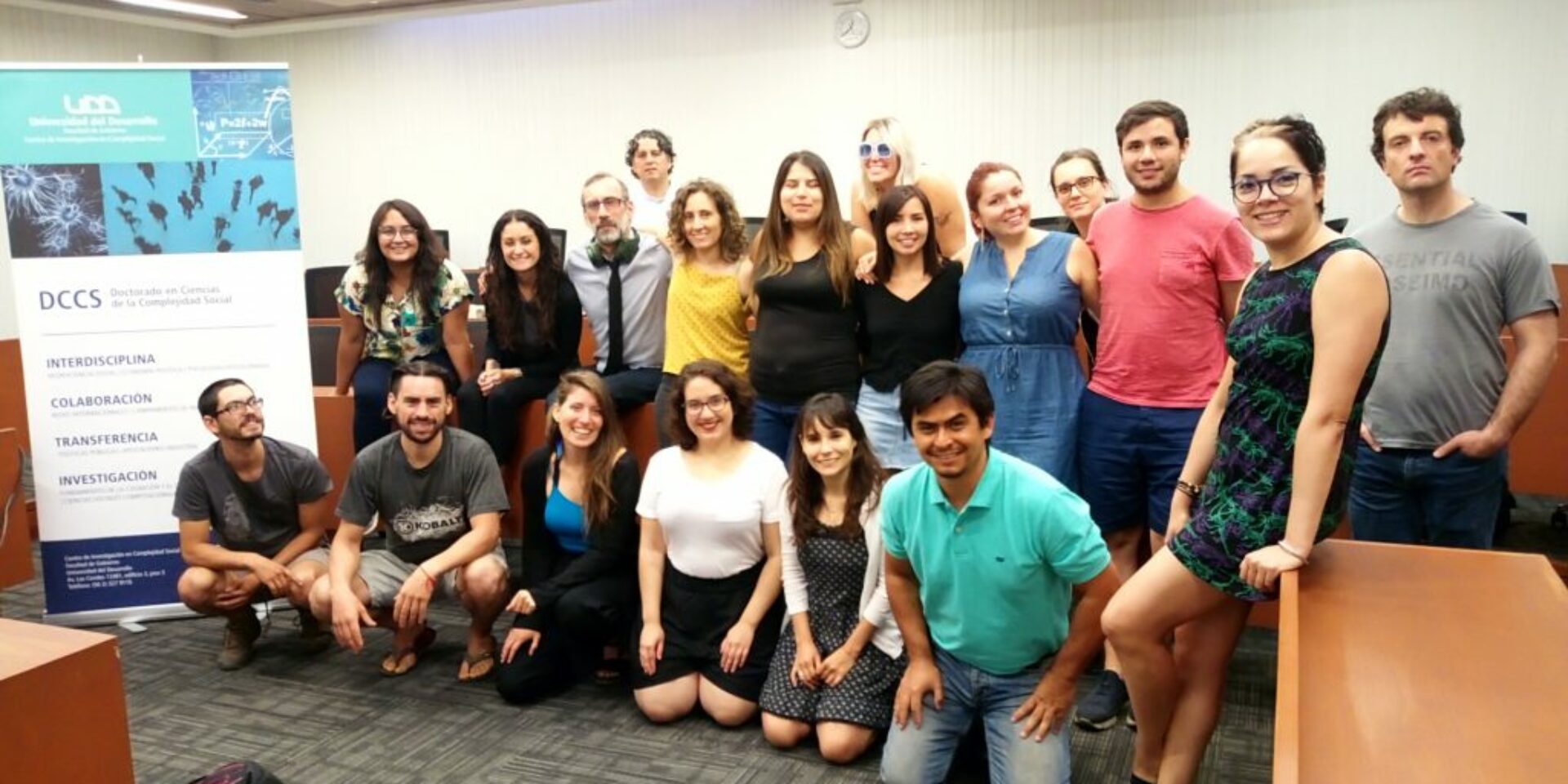
As part of the month of research, the Center for Research in Social Complexity (CICS) together with the Doctorate in Sciences of Social Complexity (DCCS) held on Tuesday 12, the first official activity «We help you with your problem». In this way, a group of academics and researchers from the various centers that collaborate with the CICS together with the students of the DCCS, met to give answers and suggestions to their concerns.
In this first session, students Gabriela Fajardo and Hugo Contreras (generation 2018) and Melanie Oyarzún and Daniel Torrico (generation 2019), made their presentations, being advised by researchers Pablo Polo and José Antonio Muñoz from Labcah; Patricia Soto-Icaza, Carlos Rodríguez, Jorge Fábrega, Ricardo Guzmán and Pablo Billeke, from CICS.
Gabriela Fajardo
The work presented by Gabriela Fajardo is related to the first article of this student’s thesis, whose hypothesis suggests that men with greater resources will have a greater tendency to establish long-term relationships. Overall, the results show a positive relationship between self-reported status and long-term sociosexuality. However, certain concerns arose when it came to setting the predictions for this research.
Melanie Oyarzún
Melanie Oyarzún, with «Emergence of social hierarchies in public elementary schools», studies the role of hierarchy in differences in cooperation. She analyzes the possibility of quantifying the social rank of individuals in a class, through the behavior observed in the game of duos. «There is a hierarchy group that receives more tribute than others, but it breaks down when there is friendship,» the student points out, giving way to feedback from the researchers.
Daniel Torrico
For his part, Daniel Torrico, presented his work «Effect of motherhood on human prosocial behavior in the dictator game». In it, the DCCS doctoral student presented the methodology used to carry out his research, receiving various contributions from the attendees, mainly in relation to the sample.
Hugo Contreras
At the end of the session, Hugo Contreras made his presentation entitled «Pro-social behaviors in Chile during the pandemic: incivilities and mobility», whose data were officially delivered for the period March-September 2020 by the Undersecretary of Crime Prevention. Likewise, the Step by Step plan, the social outburst and the prosocial behaviors of the same period of the previous year were taken into consideration.
The next sessions will be held on Wednesday, January 13 in two sessions, and it is expected that by the end of the research month, the students will have made greater progress in their respective research.